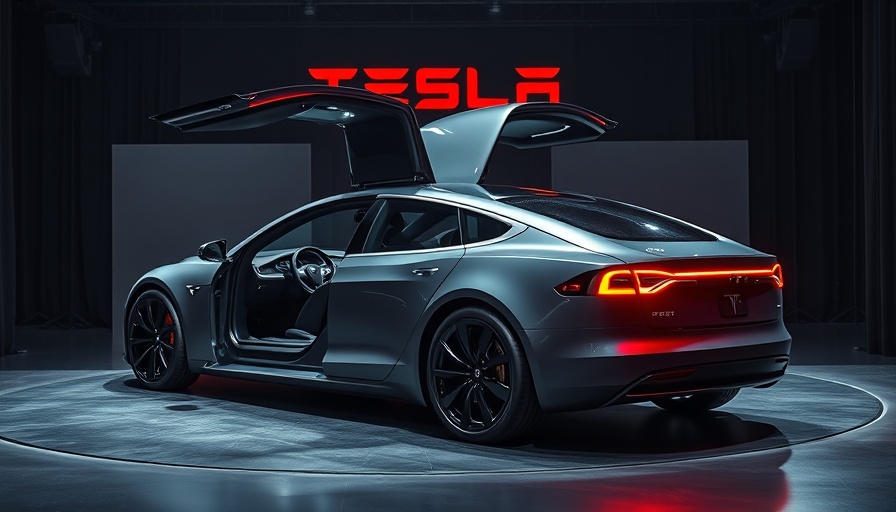
After a Tough Quarter: The Stakes for Tesla and Cybercab
As Tesla faces a staggering 20% reduction in automotive revenue compared to the previous year, the company finds itself at a critical juncture. This drop ceased to surprise analysts, highlighting a significant decline in global demand for electric vehicles (EVs), prompting discussions on what could spell the future for this iconic automotive brand. With Tesla's stock dipping over 40% since its peak in late 2024, questions linger about the effectiveness of its upcoming self-driving taxi service, the Cybercab.
Understanding the Revenue Drop: What Went Wrong?
Tesla's recent financial disclosures attribute the revenue downturn to delivery declines and a necessary retooling of production lines for newer EV versions. These adjustments, alongside a market increasingly full of competition, create a challenging environment for the electric car pioneer. Additionally, external controversies surrounding CEO Elon Musk, particularly his active participation in government initiatives during the Trump presidency, have further muddied the waters. The ongoing protests against Musk’s policies have led to public relations challenges, potentially impacting consumer interest in the brand.
The Promise of Cybercab: A Glimmer of Hope?
Despite these challenges, the launch of the Cybercab—an autonomous taxi service projected to launch in Austin, Texas, this coming June—offers a flicker of optimism for Tesla. Musk has remained adamant, issuing ambitious claims that millions of Teslas will be fully operational in an autonomous capacity by mid-next year. This optimism stands in stark contrast to prior predictions that claimed 1 million robotaxis would populate the streets by 2020, raising eyebrows about the feasibility of Musk's timelines.
The Future of Electric Mobility: Implications for Market Managers
This transitional phase within Tesla not only impacts shareholders but also sets the tone for marketing strategies across the EV sector. Marketing managers aiming to engage consumers amid this unpredictable landscape must consider the shifting public perception shaped by Musk's personal brand controversies and the company's technological promises.
Market Stability and Consumer Trust: A Double Edged Sword
Building consumer trust during turbulent times can be a daunting challenge. Tesla’s current predicament highlights the importance of transparency in marketing. Strategies should ensure that consumers are informed about both the advancements and the accompanying risks associated with EV adoption. Given the criticisms Tesla faces, clear and open communication is paramount to reinforce consumer confidence, especially as the brand gears up for its autonomous ride-hailing service.
Risk Factors: Navigating Potential Pitfalls
The road ahead is laden with potential risks—not just for Tesla but for the industry's future. Regulatory hurdles for autonomous vehicles loom large, particularly concerning safety and user liability. Marketing managers must thus remain cognizant of legal implications and privacy policies that may arise as self-driving vehicles become more prevalent.
Conclusion: What Lies Ahead for Tesla
The trajectory of Tesla and its upcoming Cybercab remains uncertain. For marketing managers, these developments serve as a reminder to adapt strategies in real-time, reflecting the fluid nature of consumer sentiment and market trends. As the electric vehicle landscape evolves, staying ahead of changing perceptions and regulatory environments will be vital for achieving overarching brand success.
 Add Row
Add Row  Add
Add 




 Add Row
Add Row  Add
Add 

Write A Comment